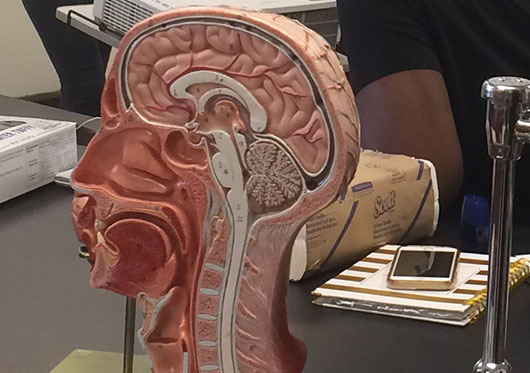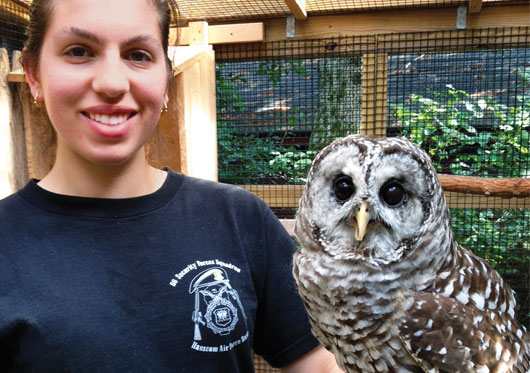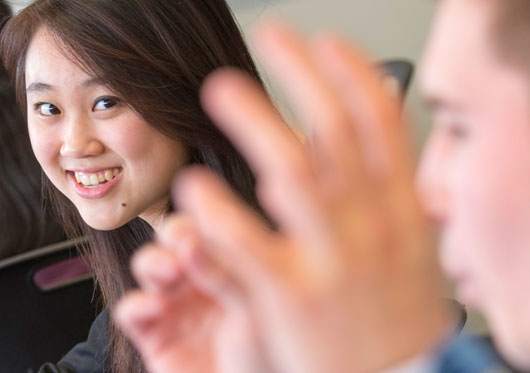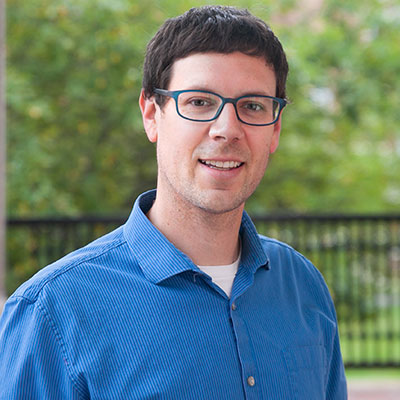Exploring the last great, biological frontier is the goal of the cutting-edge Neuroscience Major at Regis College. The major combines course work with real-world, hands-on research experiences inside laboratory settings, allowing you to cultivate applied skills and the knowledge necessary for careers in several innovative health sciences and medical research fields. The major's curriculum will also prepare you for graduate school possibilities.
Why Earn a Degree in Neuroscience?
- A Rapidly Growing Field: This trend is expected to continue for the foreseeable future as biotech, medical and life science industries drive demand for a highly skilled technical workforce.
- Diverse Career Paths: Neuroscience graduates are competitive in the biomedical, pharmaceutical and life science industries. They are also qualified to enter many health-related graduate programs including PT, OT, and PA graduate programs.
-
Where to Regis Neuroscience Students Intern?
- Mclean Hospital Basic Neuroscience Division
- Regis College Neurodevelopmental Disorders and Brain Injury Lab
- Regis College Equine Behavior and Brain Science Lab
- Regis College Alzheimer's Research Lab
-
Who Hires Regis Neuroscience Graduates?
- Charles River Laboratories
- Brigham and Women’s Hospital
- Harvard Medical School
- Mass General Hospital
- McLean Hospital
- ThermoFisher Scientific
- United States Army Research Institute of Environmental Medicine
-
Where do Regis Neuroscience Graduates Pursue Masters or Medical Degrees?
- Boston College
- Boston University
- MCPHS
- Southern New Hampshire University
- St. George University School of Medicine
- UMHS Medical School
- University of Pavia
- Wayne State University
- Yale University
Why Earn Your Neuroscience Degree at Regis?
Our innovative program that puts the classroom inside groundbreaking, real-life research provides you the opportunity to study the brain, nervous system, behavior, and cognitive processes from multiple perspectives including physiology, anatomy, pharmacology, animal behavior and data collection and analysis. This multidimensional approach allows students to explore the nervous system from the level of molecules up to memory and emotions. Course work culminates in a research experience or internship as well as one-on-one mentorship with a faculty member to prepare them to enter the workforce immediately after graduation.
- Diverse Teaching Methods: The neuroscience major requires students to engage in project-based learning, neuroscience advocacy through community outreach and student-directed learning culminating in the development and implementation of an in-depth mentored research project.
- Broad Experiences: In addition to gaining depth in neuroscience-specific content, the incorporation of active learning opportunities provides students with a broad set of skills and experiences to encourage success at Regis and in their future educational and career endeavors. These opportunities provide many avenues for personal growth and leadership keeping with the values of the Sisters of St. Joseph of Boston.
- Specialized Faculty: Regis Neuroscience faculty have extensive expertise in specialized fields of neuroscience such as behavioral and medical neuroscience, around which the neuroscience program curriculum is designed.
How Will You Rise at Regis?
After taking Introduction to Neuroscience and going to Nicaragua on a Regis service trip, I was inspired to be a caregiver with a child with cerebral palsy and it amazed me to connect what I learned in class.Mckenzi Hammond ’19, neuroscience major
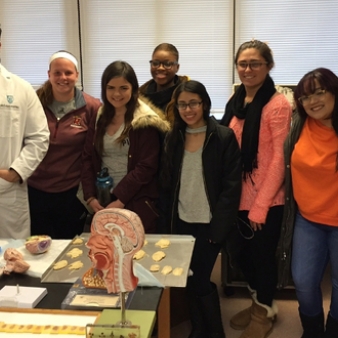
Gaining Experience
From the first year to the last semester, neuroscience majors at Regis are engaged through outreach projects, local partner field visits, and hands-on research experiences.
Students have visited the Harvard Brain Tissue Resource Center at McLean Hospital in Belmont where they heard a special lecture by former director Tim Wheelock and toured the brain bank to view healthy and diseased brain samples. They saw first-hand the importance of brain donation for research into neurological and psychiatric disorders.
